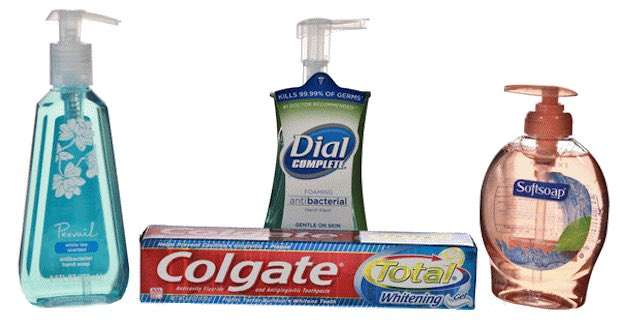Diabetes Drug 'Significantly Reverses Memory Loss' in Mice With Alzheimer's
The groundbreaking treatment doesn't just treat type 2 diabetes - it can also be developed into an effective treatment for Alzheimer's.

The U.S. Food and Drug Administration Friday issued a final rule that will ban many commonly used consumer antiseptic soaps.
Companies will no longer be able to market antibacterial wash products with any of 19 specific active ingredients because manufacturers have not demonstrated the safety of long-term daily use or show that they are any more effective than plain soap and water in preventing illness or the spread of infections.
This final rule applies to consumer antiseptic wash products only, and allows the hand "sanitizers" in health care settings.
"Some data suggests that antibacterial ingredients may do more harm than good over the long-term," said Janet Woodcock, M.D., director of the FDA's Center for Drug Evaluation and Research.
The agency issued a proposed rule in 2013 after scientific studies suggested that long-term exposure to the active ingredients — for example, triclosan (liquid soaps) and triclocarban (bar soaps) — could pose health risks, such as bacterial resistance or hormonal effects. Manufacturers were required to provide the agency with additional data on the safety and effectiveness of the 19 active ingredients addressed in the rulemaking if they wanted to continue marketing the products.
Washing with plain soap and running water remains the most effective way to avoid getting sick and to prevent spreading germs to others. If soap and water are not available, the U.S. Centers for Disease Control and Prevention recommends that an alcohol-based hand sanitizer be used that contains at least 60 percent alcohol.
In response to comments submitted by industry, the FDA has deferred rulemaking for one year on three additional ingredients used in consumer wash products – benzalkonium chloride, benzethonium chloride and chloroxylenol (PCMX) – to allow for the development and submission of new safety and effectiveness data. All manufacturers will have one year to comply with the rulemaking by removing products from the market or reformulating (removing antibacterial active ingredients) these products.
SPREAD the Good News…
Be the first to comment